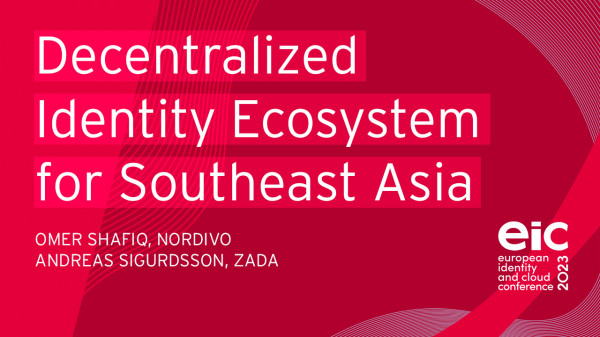Decentralized Identifiers (DIDs) offer a unique solution for digital identity verification, allowing individuals to have complete control over their own identity and eliminating the need for a centralized registry or authority. In this session, we will explore the insights that can be gained through the analysis of global DID data. At Danube Tech GmbH, we have developed version trackers that monitor various DID methods, such as did:indy, did:ebsi, did:ion and others, collecting and storing data on DID transactions in our database for analysis. During this session, we will present the results of our latest analyses, including trends in DID transactions over time, distributions across different verification methods, and errors found in DIDs and DID documents. This information can be valuable for businesses looking to understand and utilize DIDs in their operations, as well as for individuals seeking to use DIDs for their own digital identity management.

Decentralized identity has made its waves in the EU with European Blockchain Services Infrastructure (EBSI) and in the US with various funded projects. A vast market in south-east Asia stays untapped. We have enabled our partner organization ZADA to build a decentralized identity ecosystem that connects various southeast Asian countries with numerous cases like 'Decentralized Vaccination TravelPass', 'Employment IDs', and 'Government issued Educational Credentials'. The journey of a decentralized identity platform from ideation to MVP and to a scalable production system can bring tremendous insights. We were able to successfully enable the public sector in Myanmar to engage with self-sovereign identity and bring value to its citizens by issuing over more than a quarter million digital credentials. Monetization of these credentials was an essential factor for us. These self-sovereign identity credentials varied in use cases and were verified by Singapore immigration, Public sector hospitals, the Education Ministry of Myanmar, the Health Ministry of Myanmar, and various other private sector vendors. Our journey covers various use cases in EdTech, HealthTech, IAM, and KYC. Explored right, these cases can help us dive into how enterprises can engage with the southeast Asian identity market.

|
With heightened reliance on remotely delivered services and transactions, the need for safer and sounder digital identification and verification is required and will become the norm in the future. This especially is true looking forward to mandates for the adoption of zero trust frameworks in which digital credentials will be issued and then used for identification and operational purposes. GLEIF is committed to making concrete and lasting improvements to the process of identity verification by leveraging the Legal Entity Identifier (LEI) in digital tools. GLEIF has made the LEI verifiable by creating the vLEI (verifiable LEI) with digital credentials that deliver decentralized identification and verification for organizations as well as the persons who represent their organizations either in official or functional roles. GLEIF has made much progress on developing the governance, credentials and infrastructure since introducing the vLEI in 2020 and will share an updated at this progress in this session. |
